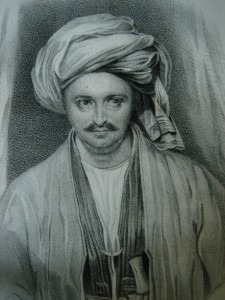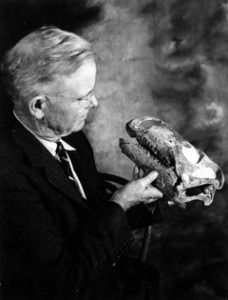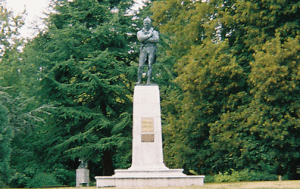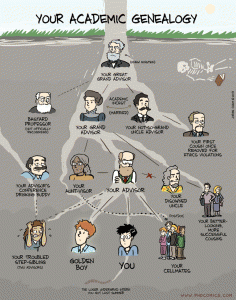I have touched more on family here than I think I intended. But, while that train is rolling, let’s just ride for a while. There is something interesting when you start looking at your family tree. I have mentioned before how in just a few generations you are directly related to more people than populated England in the 16th century. The idea that from all those strains you take your name from one, and hang some sort of cultural, ancestral, and /or genealogical identity on that is rather odd. I am sure it happens to others, but my case is really interesting since the only side of my family that has not been in America since the opening of the 17th century is the side I get my surname from.

 Granted, that side also connects be to crazy people like Alexander “Bokhara” Burnes and Robert Burn(e)s. Their grandfather is my Great^7 Grandfather. We were the lucky younger children who, instead of inheriting land and titles, moved to the United States. Interesting side note, while on a trip to Vancouver, B.C in order to get engaged, my girlfriend and I had left the aquarium and was walking through Stanley Park, where a lovers of Robert’s poetry society had erected a statue of the bard. It seemed rather fitting that I proposed to my girlfriend by the statue of my cousin and in a fell swoop soon remove all of her ancestry and replace it with my last name. This idea of who you are just gets more and more ridiculous, doesn’t it?
Granted, that side also connects be to crazy people like Alexander “Bokhara” Burnes and Robert Burn(e)s. Their grandfather is my Great^7 Grandfather. We were the lucky younger children who, instead of inheriting land and titles, moved to the United States. Interesting side note, while on a trip to Vancouver, B.C in order to get engaged, my girlfriend and I had left the aquarium and was walking through Stanley Park, where a lovers of Robert’s poetry society had erected a statue of the bard. It seemed rather fitting that I proposed to my girlfriend by the statue of my cousin and in a fell swoop soon remove all of her ancestry and replace it with my last name. This idea of who you are just gets more and more ridiculous, doesn’t it?
While we are picking and choosing a new system arises when one goes to university. Especially when one goes to university and stays for as long as I have. You get an academic genealogy. Your faculty family tree can go directly through mentors/advisors and without giving you something like a name that people can hang your identity on for you, you get the benefits of all those academic ancestors who have studied before. Phd-comics has a neat little comic that highlights this phenomenon:

 Mine is something of an interesting case, again because I think so, because it’s geography parallels by real ancestry. Without getting too technical or deep into the politics of how this works, I will run the circle for you. I am currently studying at the University of Oklahoma. I received a Master’s at Lamar University where my mentor–Dr. Jim Westgate–my doctor father if you will– still works. Jim studied at the University of Texas-Austin under Drs. Ernie Lundelius and the recently passed Wann Langston, Jr. (top right) Wann studied at the University of Oklahoma under John Willis Stovall. (above left). Wann and John named Acrocanthosaurus atokensis in a 1950 publication. If you remember in an earlier post I talked about my family living in Atoka at this time and working their fields that were within walking distance of the Acrocanthosaur find. (If you don’t remember it’s the earlier post Dino Dynasties)
Mine is something of an interesting case, again because I think so, because it’s geography parallels by real ancestry. Without getting too technical or deep into the politics of how this works, I will run the circle for you. I am currently studying at the University of Oklahoma. I received a Master’s at Lamar University where my mentor–Dr. Jim Westgate–my doctor father if you will– still works. Jim studied at the University of Texas-Austin under Drs. Ernie Lundelius and the recently passed Wann Langston, Jr. (top right) Wann studied at the University of Oklahoma under John Willis Stovall. (above left). Wann and John named Acrocanthosaurus atokensis in a 1950 publication. If you remember in an earlier post I talked about my family living in Atoka at this time and working their fields that were within walking distance of the Acrocanthosaur find. (If you don’t remember it’s the earlier post Dino Dynasties) |
| I am on the left, Dr. Jim Westgate on the right, and an academic sibling Jordan Mika. |




